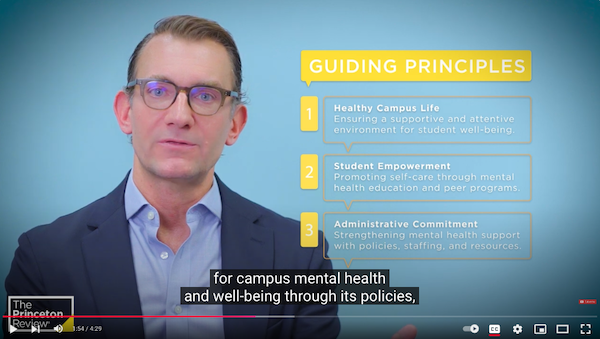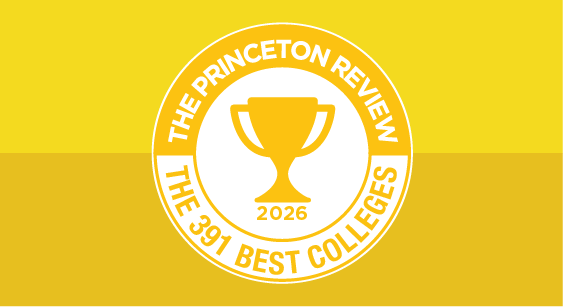Growing Demand for Campus Mental Health Resources for College Students
The need for comprehensive, accessible mental health resources on college campuses has never been more urgent for college student well-being; rising demand highlights the profound impact of mental health challenges on students’ academic and personal success. According to Inside Higher Ed ’s 2024 Student Voice survey, two in five undergraduates report that mental health issues significantly hinder their ability to focus, learn, and perform academically, with one in ten rating their mental health as “poor.” The student mental health crisis is widespread—most college students meet the criteria for at least one mental health issue—yet many, according to the National Education Association, especially students of color, face barriers to accessing care. Burned-out staff at college counseling centers further complicate the problem, making it harder for institutions to support their students. The need for comprehensive, accessible mental health resources on college campuses has never been more urgent for college student well-being.
To amplify the resources available to students on campus and to eliminate any stigma associated with seeking support, The Princeton Review partnered with The Ruderman Foundation on a multifaceted yearlong project to survey schools about their mental health services. In addition, The Princeton Review enhanced our annual student surveys to include questions about mental health. The results culminated in adding a Mental Health section to our School Profiles for 250 schools, and the creation of a Mental Health Honor Roll among the institutions who completed the new survey questions.
How College Campuses Are Responding to Student Mental Health Demands
While many schools offer one-on-one counseling resources, surging demand often means students have to wait for appointments, and/or counselors have to take too many cases. This has led many schools to take a more comprehensive health and wellness approach to addressing and anticipating their students’ mental health needs and providing education around effective one-on-one counseling substitutes. Group counseling, seminars and talks on stress management, peer counseling, training for student leaders and faculty, and national partnerships are among the many ways colleges support overall student well-being on campus.
Columbia University, one of the 16 mental health honor roll colleges, exemplifies this comprehensive approach. Columbia’s broad services to address student well-being are detailed on a dedicated mental health website, addressing everything from eating disorders and stress/anxiety to grief and depression. Through a partnership with JED, a non-profit organization dedicated to protecting emotional health and preventing suicide among teens and young adults, Columbia implemented a strategic plan that addresses training for student leaders and provides a confidential mental health screening tool (among many other tools and services).
How Campuses are Responding to Mental Health Demands: What 250 Colleges Told Us
- 63% of schools reported having peer-to-peer mental health offerings
- 79% of schools reported incorporating mental health and wellness offerings into residential life
- 72% reported having no formal wellness screening of all students
- 29% of schools reported having an accredited counseling center
What College Students Told Us About Awareness and Quality of Campus Mental Health Resources
This is how students responded to the four mental health questions from our annual undergraduate survey. For more results and rankings drawn from the responses of 168,000 students, check out The Best 390 Colleges (published August 2024).
- 78% Strongly Agree or Agree that “If I needed to seek professional help for my mental or emotional health, I would know where to access my school’s resources.”
- 61% Strongly Agree or Agree that “My institution prioritizes the mental health of students.”
- 71% Strongly Agree or Agree that “I am aware of mental health outreach efforts by my school (such as educational programs, awareness events, anti-stigma campaigns, screening days).”
- 71% Strongly Agree or Agree that “ Mental health services are readily available on campus.”
Looking for more feedback from students on mental health on college campuses? Check out our infographic, or visit our best colleges lists for Best Health Services and Best Student Support and Counseling Services.
What Does This Mean for Your Mental Health in College
Whether you have had experience addressing mental health concerns for yourself, your family, or your friends, it’s important to educate yourself about the options available to you on your future college campus. Even if you don’t need help, you might encounter a friend or classmate who does.
Looking for more information or resources about Mental Health on College Campuses?
- Give yourself a mental health check-up
- Browse our Mental Health on College Campus hub
- Five Need-to-Know Organizations for Mental Health Awareness
- Read More about Mental Health in College from the National Alliance on Mental Illness (NAMI)
 .
.
Explore Colleges For You
Connect with our featured colleges to find schools that both match your interests and are looking for students like you.
Get Started on Athletic Scholarships & Recruiting!
Join athletes who were discovered, recruited & often received scholarships after connecting with NCSA's 42,000 strong network of coaches.
Best 391 Colleges
170,000 students rate everything from their professors to their campus social scene.



